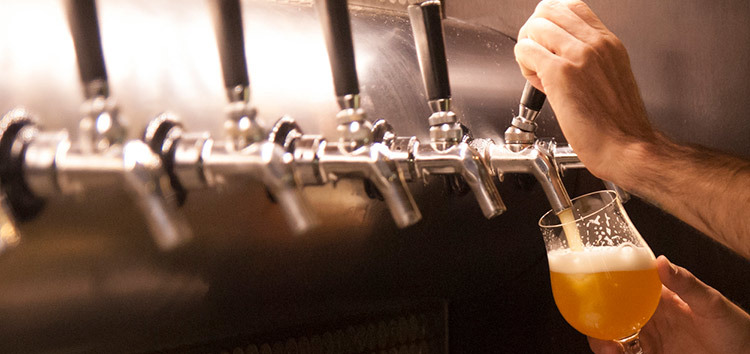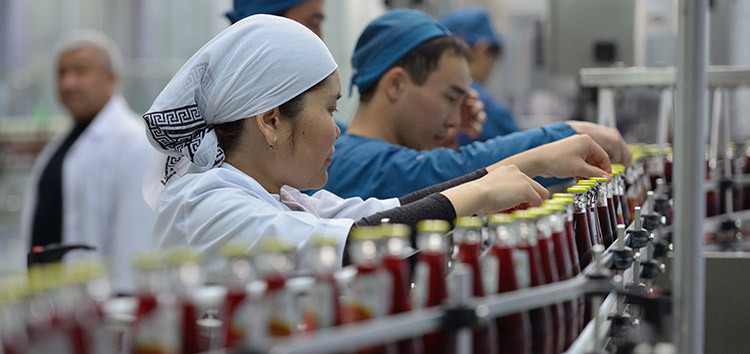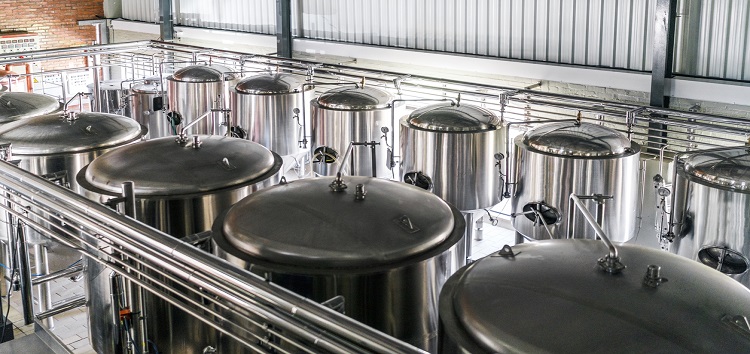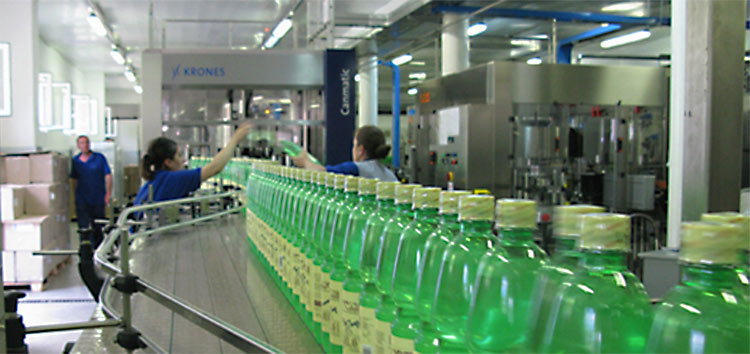FINTECC Finances CO2 Recovery System for Yager Brewery

Innovative system reduces costs and carbon footprint for leading beer producer in Turkmenistan
Having significantly increased its production capacity over the last three years, Yager — a leading brewery in Turkmenistan — is producing more carbon dioxide, but its carbon footprint is about to get much smaller.
The key is an advanced CO2 recovery system that the Turkmenabad-based brewery is installing with support from FINTECC. By capturing and storing most of the CO2 that the brewery produces, the innovative system will not only reduce Yager’s carbon emissions. By eliminating the need to source CO2 externally, it will also save the company an estimated US $50,000 per year.
Challenges and opportunities
Recent years have presented both opportunities and challenges to Turkmenistan’s brewery sector. Although demand for domestic beer has surged in response to higher taxes on imported products, a weak currency has made it more expensive for Turkmen brewers to import raw materials, such as malt, hops and glass bottles.
To reduce production costs while taking advantage of the sector’s growth, Yager and other major breweries in the country have taken steps to scale up capacity. In 2015, Yager received a US $2.7 million loan from the EBRD to increase capacity by 50% at its main brewery in Turkmenabad, in addition to purchasing production and bottling equipment for a second brewery in Ashgabat.
But according to Yager CEO Abray Allaberdiyev, the most innovative change that the company is making under the EBRD investment programme is also one that he expects to deliver a significant competitive advantage.
“CO2 is a major input in beer brewing that is costly and inconvenient to source and store. However, it is also a natural by-product of our manufacturing processes,” he says. “By allowing us to become completely self-sufficient with our CO2 needs, the CO2 recovery system will allow us to dramatically reduce our production costs, while having a positive impact on the environment.”
Capturing carbon dioxide
Supported by a $79,000 incentive grant under the EBRD’s FINTECC programme, Yager’s CO2 recovery system is one of the first of its kind in Turkmenistan. Working with FINTECC experts, Yager decided to install a system that would capture the CO2 not just from the beer fermentation process, as originally planned, also from the plant’s heating systems.
The system works by recovering CO2 from fermentation tanks and steam boiler exhaust. Special equipment collects the gas, purifies it and stores it in liquid form in a tank. CO2 can then be extracted directly from the tank when it is needed during bottling, or it can be transferred to metal cylinders and stored for future use.
“Initially, we planned to purchase equipment with a CO2 collecting capacity of 50 kg/hour, but this turned out to be insufficient for our production needs and not profitable in the long run,” Allaberdiyev explains.
“So we decided on a system with 150 kg/hour CO2 collecting capacity instead, but it was technically more difficult to implement because it captures gas from fermentation and boiler exhaust. Without EBRD’s funding and technical support, we would not have been able to undertake this complex project”.
Lower production costs
When fully operational in mid-2018, the novel system will capture about 300 tonnes of CO2 per year at Yager’s newly expanded production capacity. As a result, the brewery will no longer have to source CO2 externally, resulting in savings of $50,000 year.
“The growth of the domestic beer market represents an exciting opportunity for Yager, but the relatively high costs of raw materials mean we need to be smart about expansion — efficiency is paramount,” Allaberdiyev says.
“By recovering and recycling the CO2 we produce, we are significantly lowering not only our production costs, but also our greenhouse gas emissions.
“By expanding our production capacity, then, we’ve actually managed to shrink our carbon footprint — I think very few businesses can say that.”


